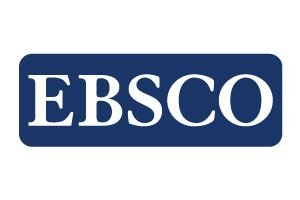Idea Web Strategy on the Reading Comprehension of EFL Learners: An Enhancement Model
DOI:
https://doi.org/10.11594/ijmaber.06.05.33Keywords:
EFL reading comprehension, Idea Web Strategy, summary writing, journal writing, Taiwanese senior high school studentsAbstract
This study quantitatively investigated the impact of integrating writing tasks, specifically the Idea Web strategy, into EFL reading instruction for Taiwanese senior high school students. The research employed a three-group quasi-experimental design to compare the effectiveness of different reading strategies on students' comprehension. 24 participants were divided into three groups of 8 members each: Reading with Summarizing, Reading with Journalizing, and a control group using a conventional oral discussion strategy. Reading comprehension was measured using pre- and posttests. The quantitative results demonstrated that integrating writing tasks, particularly summarizing and journalizing, led to significant improvements in students' reading comprehension compared to the traditional approach. This suggests that incorporating active writing strategies enhances reading comprehension more effectively than conventional methods in EFL contexts.
Downloads
References
Alderson, J. C., & Banerjee, J. (2014). Assessing reading comprehension. Cambridge Uni-versity Press.
Carrell, P. L. (1983). Some applications of schema theory in reading comprehen-sion. Cambridge University Press.
Esmaeili, A. (2015). Improving writing skills through reading. Journal of Educational Psychology, 10(2), 213-225.
Ferris, D. (2017). Teaching reading and writ-ing in second language classrooms. Routledge.
Graham, S., & MacArthur, C. A. (2017). The role of writing in the development of reading comprehension. Learning and In-struction, 47, 41-53.
Harris, T. L., & Hodges, R. E. (1995). The Liter-acy Dictionary: The Vocabulary of Read-ing and Writing. National Council of Teachers of English.
Heilman, A. W., Blair, T. R., & Rupley, W. H. (1998). Principles and practices of teach-ing reading. Merrill.
Lantolf, J. P., & Thorne, S. L. (2018). Sociocul-tural theory and second language learn-ing. Oxford University Press.
Likert, R. (1932). A technique for the meas-urement of attitudes. Archives of Psychol-ogy, 22(140), 55–55.
MacIntyre, P. D. (2014). The role of self-perception in second language learning. Language Teaching Research, 18(1), 1-20.
McNeil, D. (1992). The meaning of meaning: A study of the influence of cognitive devel-opment on teaching reading. Cambridge University Press.
OECD. (2022). PISA 2022 results: The state of reading comprehension in the world’s ed-ucation systems. Organization for Eco-nomic Co-operation and Development. Retrieved from https://www.oecd.org/pisa
Rumelhart, D. E. (1977). Toward an interactive model of reading. Cognition, 5(3), 1-24.
Smith, M. L. (2022). The impact of social learn-ing theory on language acquisition. Jour-nal of Educational Psychology, 85(1), 32-40.
Taiwan News. (2024). Taiwan's reading com-prehension ranking drops in PISA 2023 results. Taiwan News. Retrieved from https://www.taiwannews.com.tw
Tineke, A., & Luke, A. (2013). The GEPT Re-search Report: Language Proficiency and Student Outcomes. GEPT Research Divi-sion. Retrieved from https://www.gept.org
Vygotsky, L. S. (1978). Mind in society: The de-velopment of higher psychological pro-cesses. Harvard University Press.
Wei, L., & Huang, W. (2021). Active learning strategies for improving reading compre-hension. TESOL Quarterly, 55(4), 1132-1148.
World Medical Association. (2013). Declara-tion of Helsinki: Ethical Principles for Medical research involving human sub-jects. Retrieved from https://www.wma.net/what-we-do/medical-ethics/declaration-of-helsinki
Zhang, Y., & Li, W. (2018). The role of writing in second language reading comprehen-sion. International Journal of Applied Linguistics, 28(2), 134-148.
Downloads
Published
Issue
Section
License
Authors who publish with this journal agree to the following terms:
Authors retain copyright and grant the journal right of first publication with the work simultaneously licensed under a Creative Commons Attribution License that allows others to share the work with an acknowledgement of the work's authorship and initial publication in this journal.
Authors are able to enter into separate, additional contractual arrangements for the non-exclusive distribution of the journal's published version of the work (e.g., post it to an institutional repository or publish it in a book), with an acknowledgement of its initial publication in this journal.
Authors are permitted and encouraged to post their work online (e.g., in institutional repositories or on their website) prior to and during the submission process, as it can lead to productive exchanges, as well as earlier and greater citation of published work (See the Effect of Open Access).
















